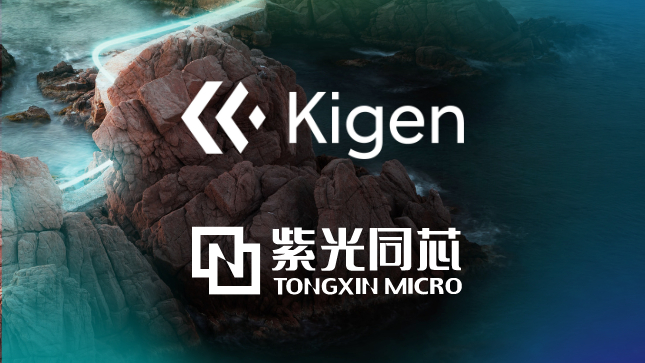Ireland-based SIM specialist Kigen, formerly part of Arm, has teamed up with China-based fabless chip design firm Tongxin Microelectronics (TMC) on an IoT-based consumer eSIM solution for original equipment makers (OEMs) to develop customer premise equipment (CPE) to support fixed-wireless access (FWA) 5G services, and to drive “the next billion connections”, they said.
The new GSMA-certified solution features a Kigen-designed embedded SIM (eSIM) – or universal integrated circuit card (eUICC) – and eSIM operating system, integrated into a hardware module from TMC. It is designed as the hardware/software foundation for “affordable CPE solutions”, to bridge the ‘last mile’ in 5G network delivery for businesses or households that “lack connectivity or networks in motion”.
Kigen said: “Operator demand for 5G FWA is driving the need for a multitude of CPE form factors. This includes indoor, rooftop, wall-mounted, or portable and battery-operated CPE devices.” The firm quoted a forecast from Counterpoint Technology and Research that cumulative global revenues from the sale of 5G-based CPE for FWA services will pass $100 billion in the decade-period to 2030, based on the proviso that costs come down.
“Bringing down the total cost of 5G FWA CPE is integral to 5G broadband adoption, scale and return on investment for all stakeholders in this price sensitive segment,” said Counterpoint Technology and Research, in a supplied quote. The new Kigen/TMC module is “helping to fast-track” this growth in the consumer 5G broadband market, based on eSIM technology originally designed for straighter IoT use cases.
Kigen said: “FWA represents the second largest 5G revenue opportunity in unserved and underserved areas, estimated as one billion addressable connections.” It cited the rollout of 5G-based FWA services in “populous countries such as” India, Mexico, Nigeria, the Philippines, and South Africa, and said OEMs are currently trialling its new solution to support FWA for retail point-of-sale (POS), smart metering, and logistics cases.
“Premises with less than 100 users have the broadest applicability for device makers to deliver differentiated experiences,” it stated. The new solution has Kigen’s compact (“the world’s most compact”) consumer eSIM OS run on TMC’s THD89-series eSIM chipset, – also available as a smaller wafer-level chip scale package (WLCSP) with Kigen’s remote SIM provisioning platform for IoT devices.
Kigen claimed easy installation, with “simple field setup” and onboarding, plus digital profile downloads for activation or switching profiles. Kigen’s eSIM OS supports up to 10 operator profiles; multiple profiles are supported on the memory-constrained TMC TDH89-512 variant. The solution is available now for OEMs; Kigen noted OEMs are currently responding to a “large number of service provider RFP/RFIs” for FWA CPE devices, after “successful [FWA] adoption from lead customers for multiple applications”.
Vincent Korstanje, chief executive at Kigen, said: “CPE devices are a catalyst for much larger, global deployments of the 5G roll-out and an absolutely critical requirement to ensure a great return on the 5G investment. Kigen’s focus on energy efficient security OS for IoT now extends to the consumer market and brings time-to-market advantage in combination with TMC’s chip expertise to scale fast.”
John Zou, vice general manager at TMC, said: “[This] eSIM solution will enable device makers to provide their customers with global connectivity without the need for changing physical SIM cards. This will make it easier for device makers to sell products in multiple countries.”

